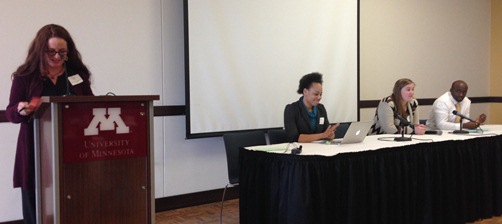On Wednesday January 8, teacher candidates in a TERI course, “Cultures, Schools, and Communities,” visited Brooklyn Center High School. The school visit was planned as a key class component of the 7th Great Lesson, entitled “Family & Community Partnerships that Support Learning.”
Michael Goh, co-instructor of the course, emphasized the importance of taking teacher candidate students out of a lecture hall, and bringing them to an authentic setting like Brooklyn Center Community Schools.
“We are constantly studying our design of the Great Lessons to amplify [teacher candidates’] learning experience. To that end, it is especially vital that we are able to bridge theory and practice, and future teachers are able to experience what they read and discuss from our Great Lessons beyond the abstract. We have a unique opportunity to immerse ourselves in a school district that epitomizes family and community partnerships [through] one of the exemplary Brooklyn Center Community Schools.”
Upon arrival, our teacher candidates were warmly greeted by Dr. Carly Jarva, principal of Brooklyn Center High School. The candidates were then met by a group of high school seniors and school staff who graciously gave us school tours showcasing a multitude of integrated services, including an onsite Health Resource Center which provides health, dental, and mental health services for students as well as any community members who are birth to 18 years of age.
During the panel discussion, teacher candidates listened to powerful stories of the panelists’ commitment to creating and strengthening community partnerships that support student learning. Through authentic dialogue about the challenges as well as the opportunities to make students the core of family and community partnerships, our future teachers engaged in deep reflection on the critical role they play within these partnerships.
Many future teachers felt empowered to learn that classroom teachers are an integral part of community building. And their engagement process begins within their own classroom by creating a trusting and supportive community with students and their families. Here are some of student comments after the visit:
“I was totally captivated by the panel of speakers at Brooklyn Center High School. They were so generous with their passion and their time, and I am energized by their words. What I like most of all is that the school and district leaders are rolling up their sleeves and “humbling” themselves in order to precipitate real change in the community and for the students.”
“Brooklyn Center Community School is where I am currently placed, and my first day was the day of Great Lessons. I had done some research prior and have been very observant of the things that BCMS offer to their students including an extensive after school program, health facilities, and supportive/extensive staff. At Great Lessons, I got an even better picture of the services they provide. I am glad that the school values building community and implemented such a great system.”
“I have heard about community schools, and it is great to work in and see one in action. I think such an idea also creates a great school environment with staff, students, and families. I learned a great deal about the concept and can only hope to work in such an environment in the future.”
“As a future teacher, sometimes I get so caught up in how I’ll explain my content or how I’ll manage my own classroom, that it’s easy to forget that students have lives outside of the walls we share, that may affect their academic success. My time at Brooklyn Center, and the panel of speakers, candidly addressed some of these issues, and reminded me that wrap around services in schools can help, not only the student body, but the entire community. It’s a powerful reminder for everyone; until a student’s basic needs are met, they cannot learn.”
Submitted by Shuji Asai, Licensure Officer
Teacher candidates tour Brooklyn Center High School.

Panel members (L to R) Dr. Mark Bonnie, Superintendent; Dr. Carly Jarva, Principal; Jackie Starr, Family and Community Liaison; Willie Finley, 21st Century Grant Coordinator.
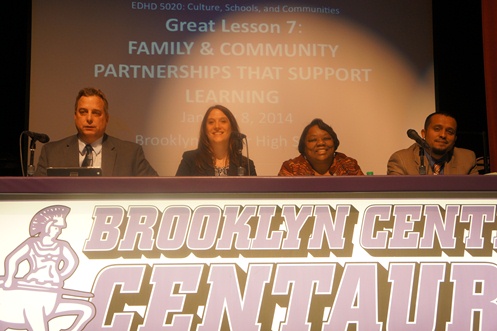
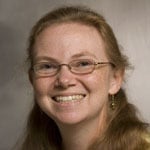

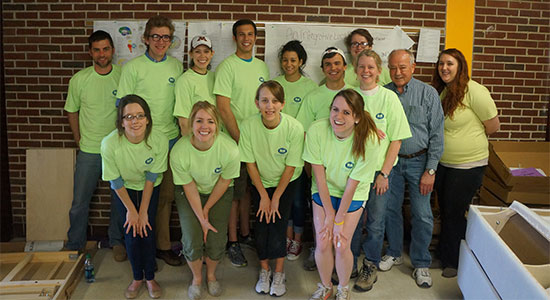
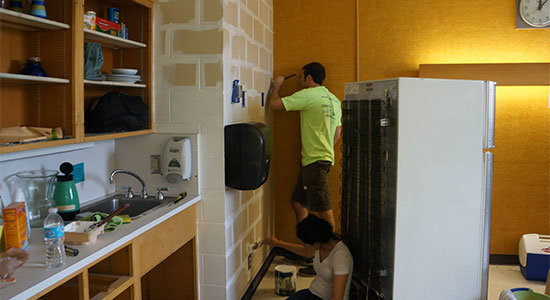
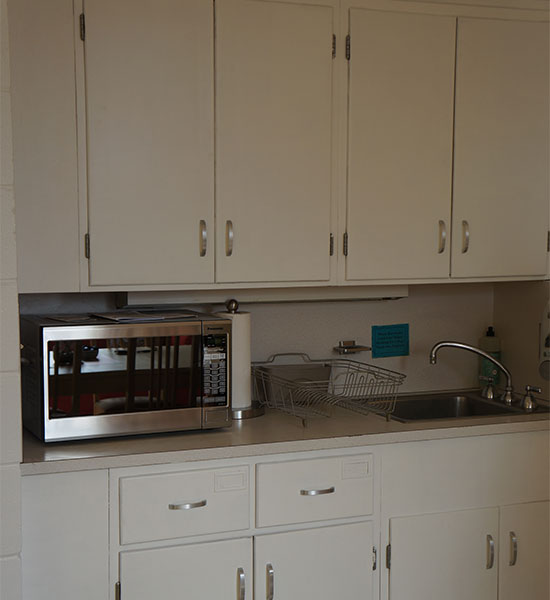
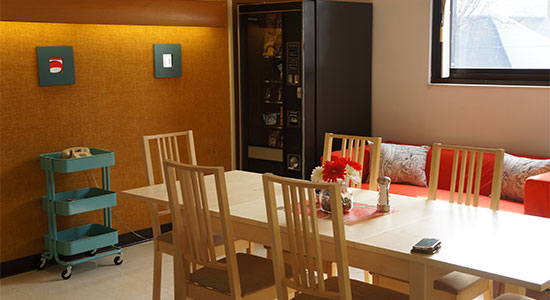
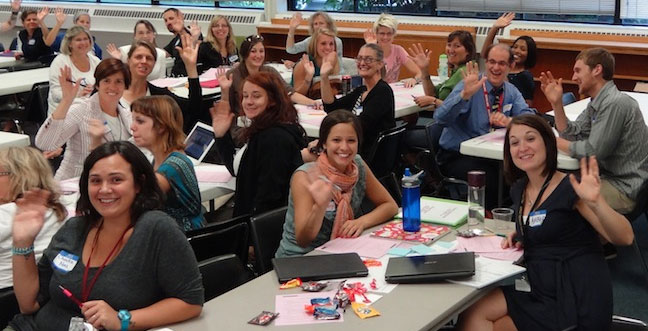

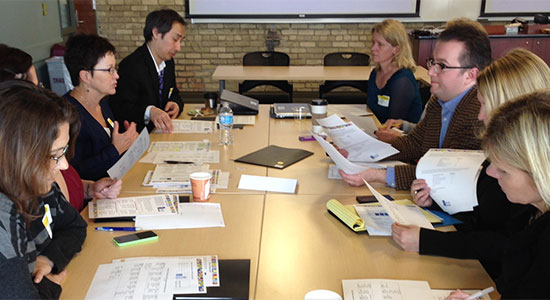
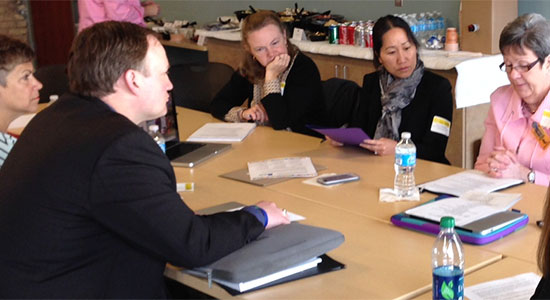
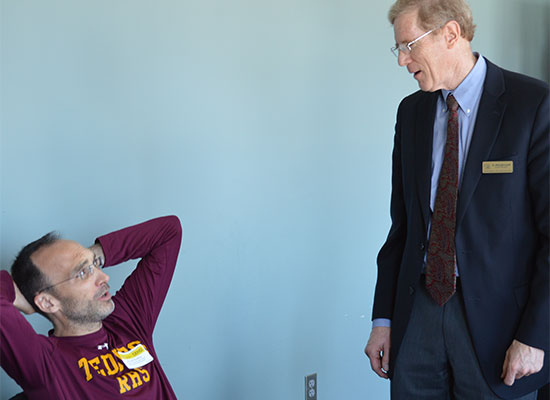
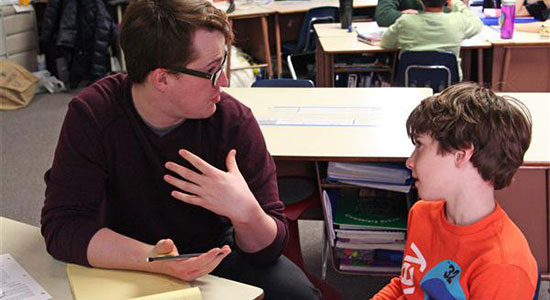
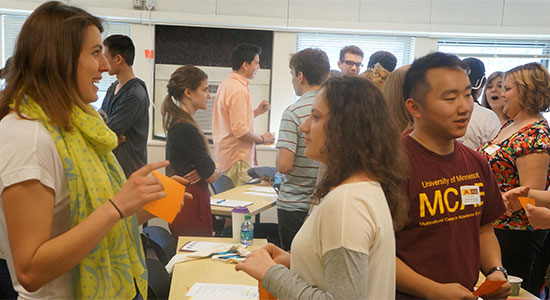
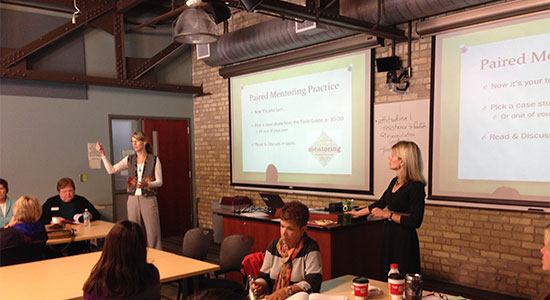


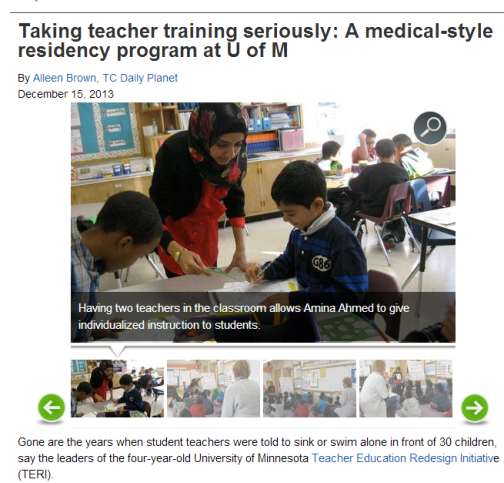 width=”504″ height=”483″ />
width=”504″ height=”483″ />